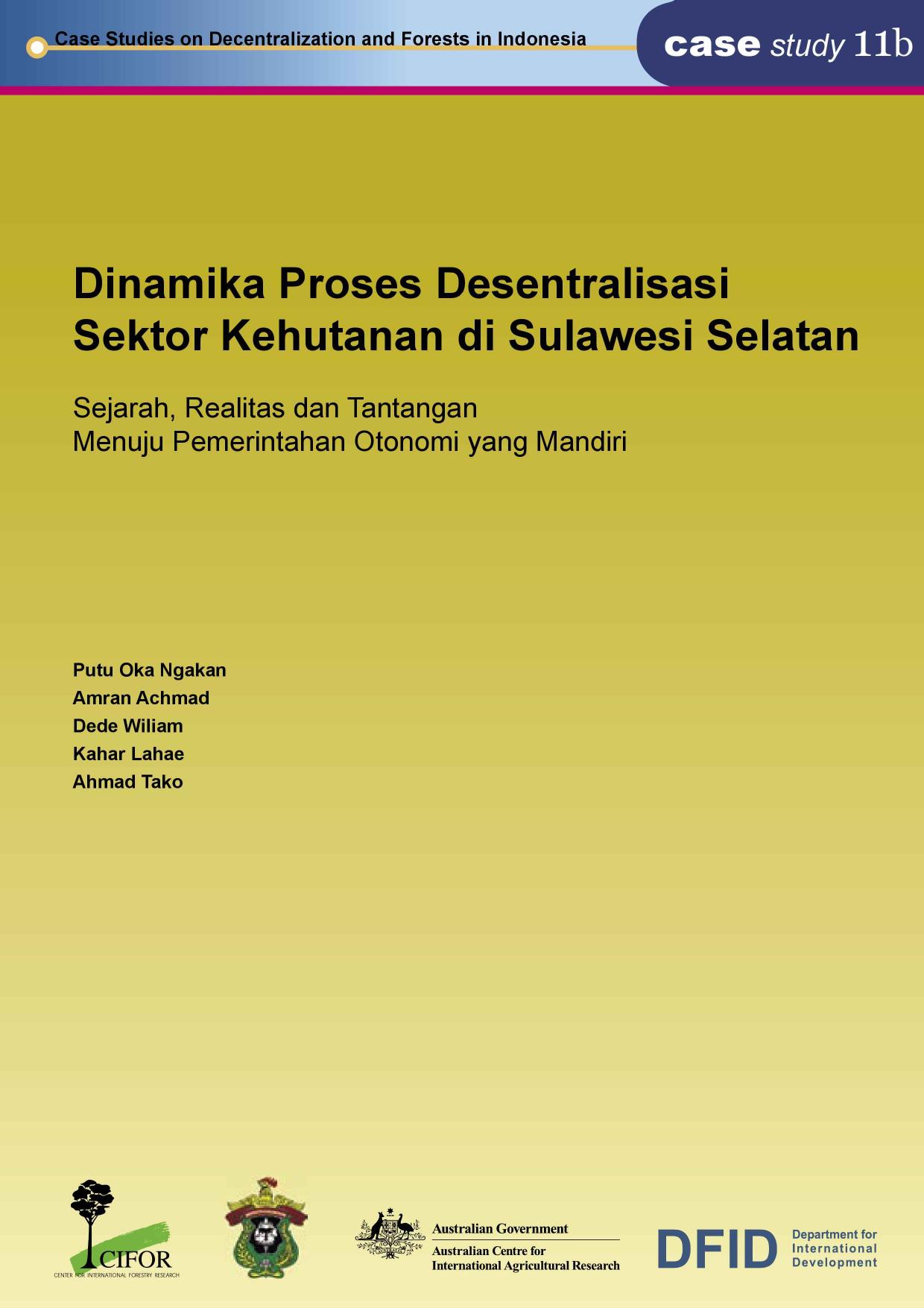
Dinamika Proses Desentralisasi Sektor Kehutanan di Sulawesi Selatan: Sejarah, Realitas dan Tantangan Menuju Pemerintahan Otonomi yang Mandiri PDF
75 Pages·2005·1.9785 MB·other
Most books are stored in the elastic cloud where traffic is expensive. For this reason, we have a limit on daily download.
Preview Dinamika Proses Desentralisasi Sektor Kehutanan di Sulawesi Selatan: Sejarah, Realitas dan Tantangan Menuju Pemerintahan Otonomi yang Mandiri
Description:
Having broken away from Luwu District in 2001, the Luwu Utara District Government has faced many problems in its three years of implementing decentralization. The obstacles to implementing decentralization were due mainly to the inconsistency of national laws and regulations, unclear division of responsibility and authority between district, provincial and central governments, an unfair balancing mechanism for reforestation funds between producing and non-producing districts, increased claims of tenure by local communities, low levels of public participation in decision-making processes and a lack of spatial planning at the district level. This study found that at the beginning of decentralization the district government was not very well prepared and lacked adequate human resources and facilities for taking over the management of its forests. As time progressed, the Luwu Utara District Government, especially the Forestry and Estate Crops Offi ce, strove continuously to improve its forest management capacity. However, due to a lack of resources and uncertain division of authority, many aspects of forest management are still not handled properly. By using an inclusive decision-making process for the research process, this study helped the district government and local communities to look at underlying causes of problems in implementing forestry sector decentralization in their areas and to find alternative solutions to these problems. As a result, the district Forestry Offi ce has undertaken many activities in direct response to the outcomes of this research project, such as a social forestry programme for local forest-dependent communities and the adoption of more inclusive processes for ...
See more
The list of books you might like
Most books are stored in the elastic cloud where traffic is expensive. For this reason, we have a limit on daily download.
